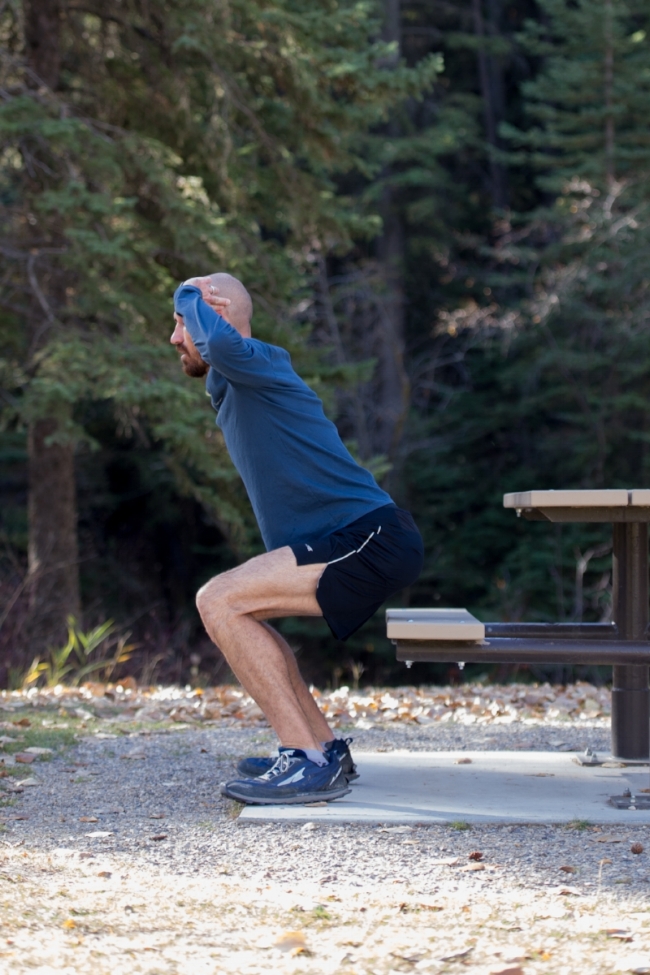Strength training, like running, should start with the basics. Building muscular strength and endurance can enhance running performance and injury resistance. However, jumping into an intense strength training program without proper preparation is a recipe for injury and frustration.
Before adding heavy weights, start with body weight exercises that emphasize core strength and isolate key running movements. By using our body’s natural levers rather than the levers of machines we develop balance and strength in injury prone areas. And for most of us, our body weight provides more than enough resistance to build a strong foundation.
Here are some exercises that I do regularly because they target key areas and don’t require much additional time or equipment. The entire routine only takes a few minutes and can be done at home, at the gym, or at your local park.
Push – Ups (2 sets x Max)
Touch your chest to ground between each rep. Photo by Sean Nielsen from the Peak Run Performance Rocky Mountain Running Retreat.
Lock out your elbows. Keep your back straight while activating the abs, glutes, and lower back. Photo by Sean Nielsen from the Peak Run Performance Rocky Mountain Running Retreat.
Front Planks (2 sets x 30 to 60 seconds)
Keep your back straight. Activate your abs, glutes, and lower back. Photo by Sean Nielsen from the Peak Run Performance Rocky Mountain Running Retreat.
Hill Climbers (2 sets x 30 to 60 seconds)
Drive one knee at a time toward the chest. Photo by Sean Nielsen from the Peak Run Performance Rocky Mountain Running Retreat.
Pelvic/Hip Thrusts (2 sets x 15 or Max)
Rest your back on the ground between reps. Photo by Sean Nielsen from the Peak Run Performance Rocky Mountain Running Retreat.
Thrust your hips up and hold. Photo by Sean Nielsen from the Peak Run Performance Rocky Mountain Running Retreat.
Bicycle Crunches (2 sets x 50)
Touch your elbow to the opposite knee. Photo by Sean Nielsen from the Peak Run Performance Rocky Mountain Running Retreat.
Touch your elbow to the opposite knee. Photo by Sean Nielsen from the Peak Run Performance Rocky Mountain Running Retreat.
Pull Ups (2 sets x Max)
Allow your arms to fully extend. Photo by Amy Puzey
Pull your body all the way up until you can lift your chin above the bar.
Inverted Lunges (2 sets x 10 per leg. Add more each week)
Stand tall. Photo by Peter Collins.
Don't let your knees cross your toes. Photo by Peter Collins.
Step Ups (2 sets x 10 per leg. Add a few more each week)
Start with one knee up. Photo by Peter Collins.
Drive the opposite arm & leg up. Photo by Peter Collins.
Running Arms (2 sets x 30 – 60 seconds
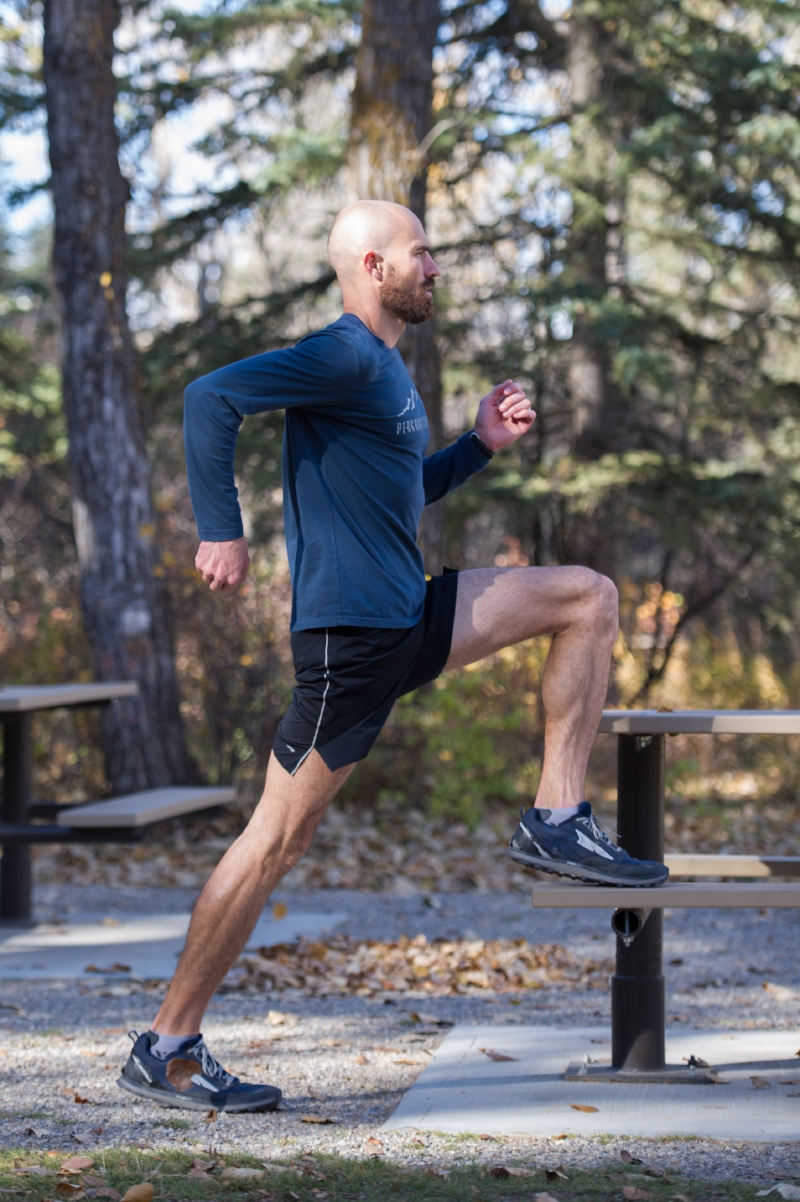
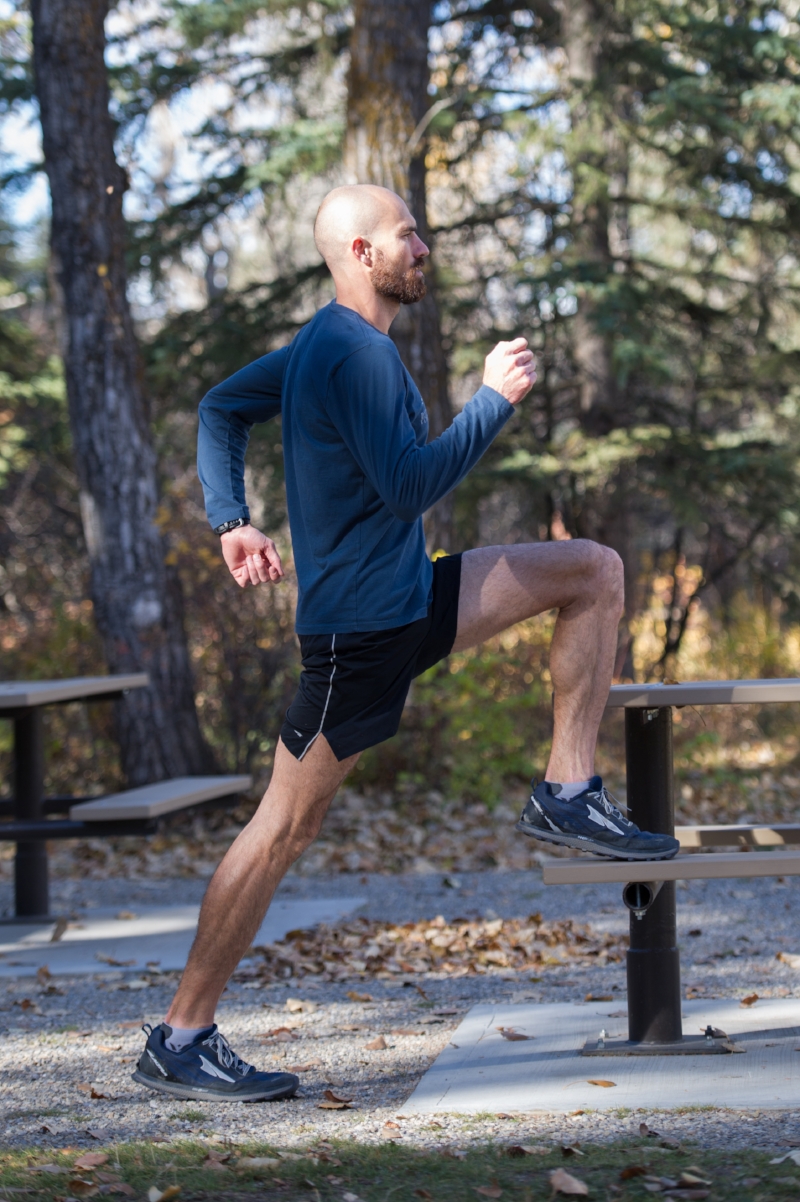
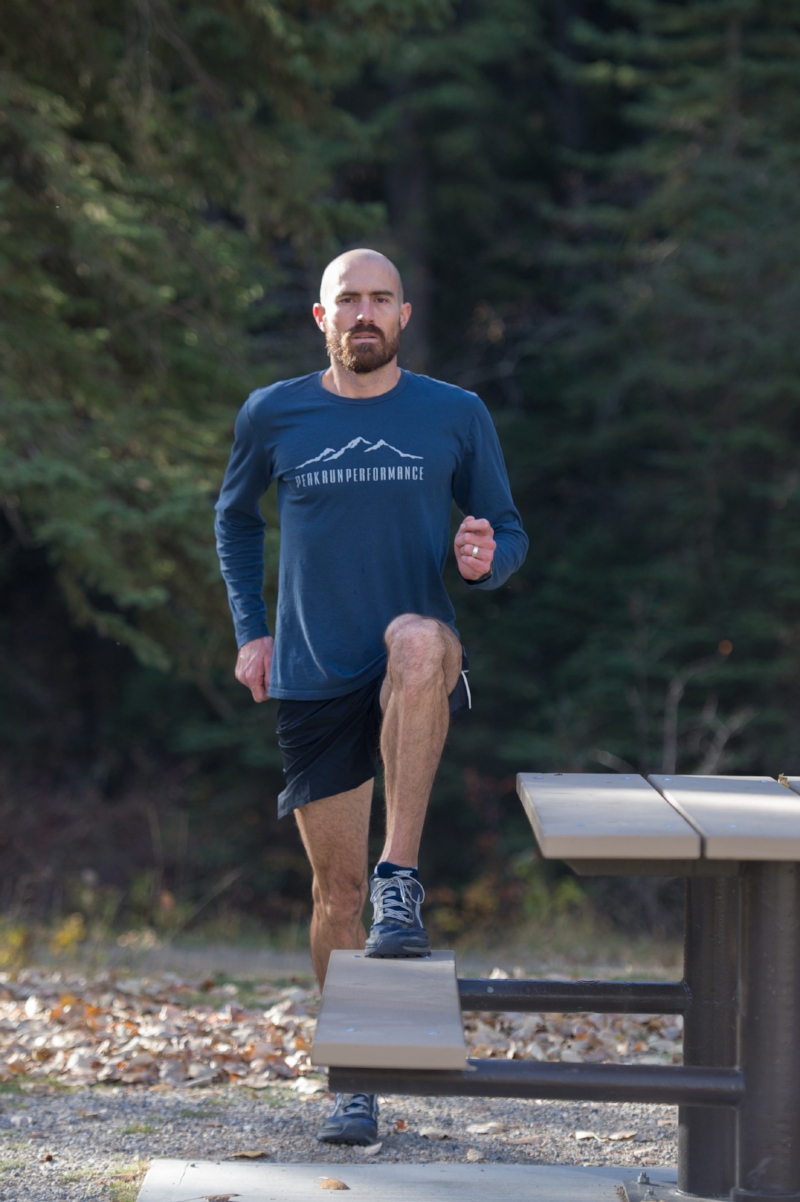
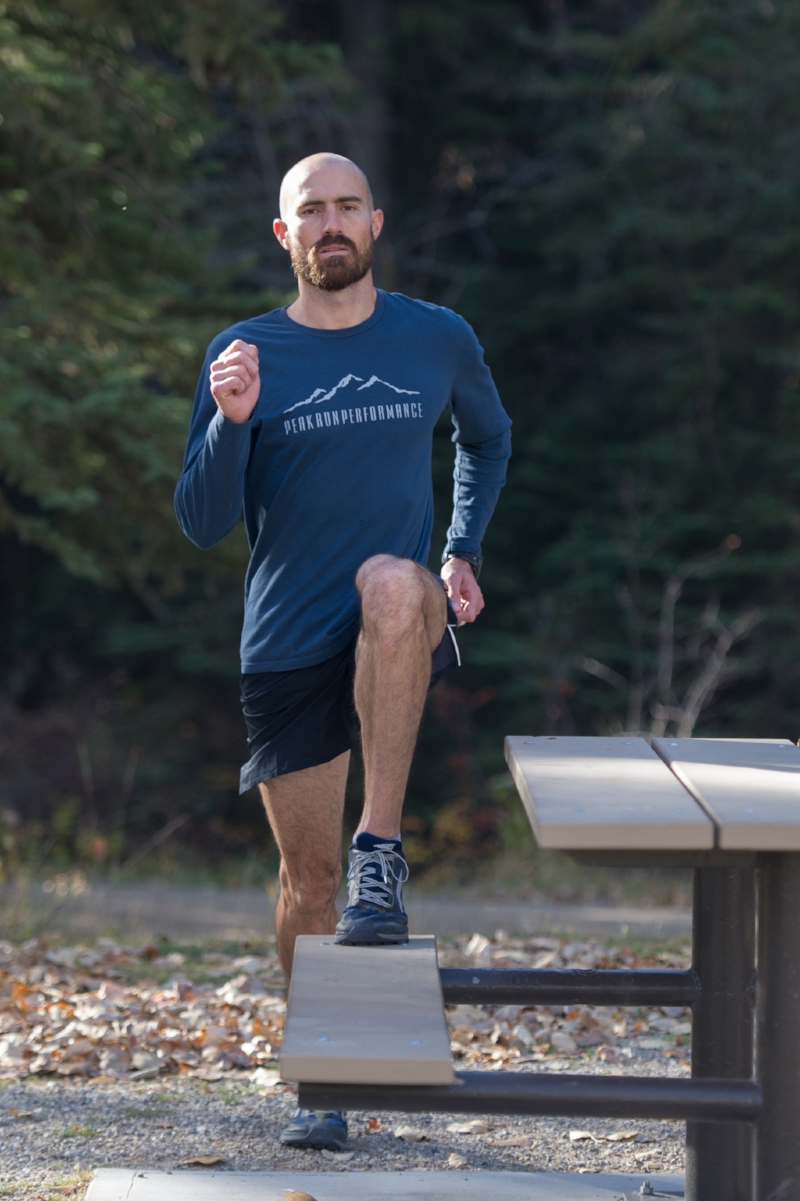
- Stand tall.
- Swing arms at approximately a 90 degree angle.
- Drive arms back leading with the elbow.
- Drive hands up, but not above the chest.
- Avoid crossing the midline.
- Keep your elbows in and thumbs up.
Photos by Peter Collins
Box Squats (2x15)
Sit down. Keep your back straight. Try to keep your knees behind your toes.
Photo by Peter Collins
Each of these exercises works essential running muscles and will provide a base for more intense efforts later in the training plan. Variations of many of the exercises such as side planks, plank rotations, and lunge matrices can add additional stimulus, but focus on these basic movements for now and you’ll have plenty of time to add more to your routine as you progress through it.
Remember – It's All About the Base
Jacob Puzey is a multiple time national champion and world record holder who helps athletes from all over the world of all ages, abilities, and ambitions to achieve their goals on all distances and surfaces via www.peakrunperformance.com
















